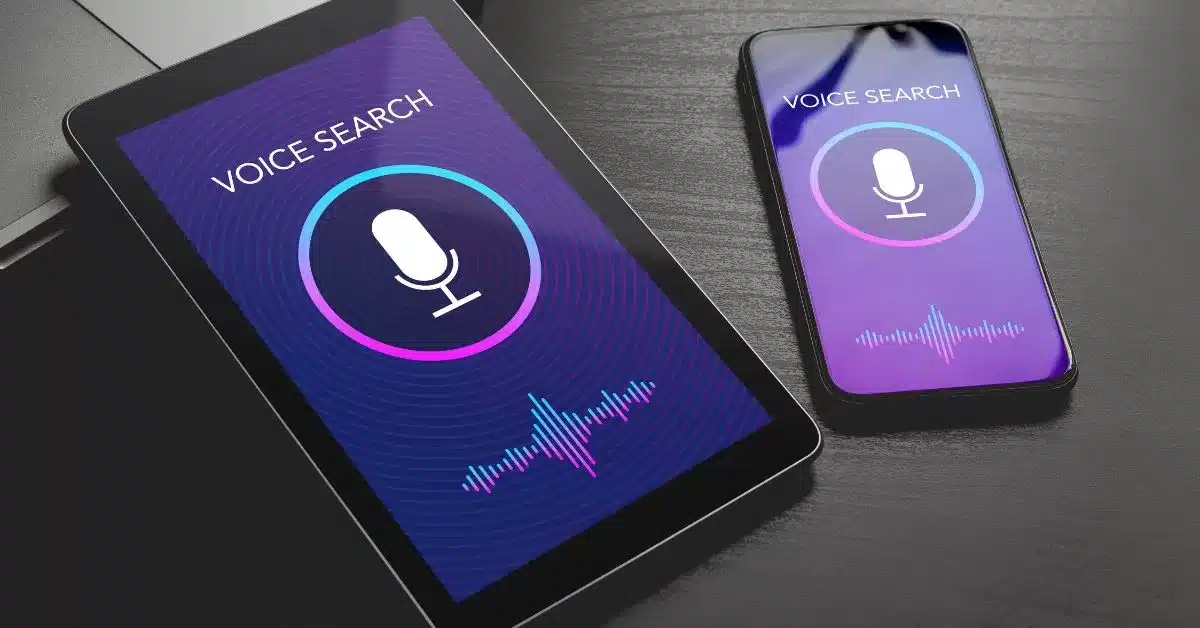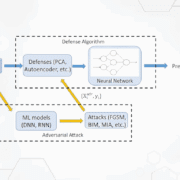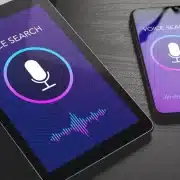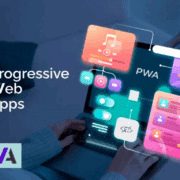Voice Recognition Capabilities in Hybrid App Development
In today’s rapidly-evolving landscape of mobile applications, technological innovations are driven by convenience and user experience.
While hybrid mobile applications have already become the cornerstone of user interaction, another groundbreaking advancement is redefining user experience in the world of hybrid app development—Voice Recognition.
With the growing demand for intuitive and accessible applications, voice recognition capabilities are emerging as a revolutionary trend in mobile app development. These capabilities empower users to engage with applications through natural language, offering seamless, hands-free experiences.
But what does it mean for modern businesses?
It means that businesses that continue to invest in hybrid mobile application development services must leverage voice recognition capabilities to build better, more interactive hybrid mobile apps.
In this blog, we will further explore the world of voice recognition. You’ll get to know how voice recognition capabilities benefit hybrid mobile apps and they are transforming multiplatform mobile app development for the better.
What is Voice Recognition?
Voice recognition, also known as speech recognition, refers to the capability of a device or application to receive, interpret, and respond to spoken commands. This technology relies on natural language processing (NLP), machine learning, and artificial intelligence (AI) to convert human speech into digital commands.
Voice recognition works by analyzing vocal inputs, breaking them into digital signals, and processing these signals using complex algorithms to determine the meaning. Over the years, the technology has become more sophisticated, enabling its integration in different technologies such as multiplatform mobile app development.
The Rise of Voice Recognition in Mobile Applications
Voice-enabled mobile apps have gained immense popularity, thanks to virtual assistants like Siri, Google Assistant, and Alexa. These systems have made voice interactions a norm, encouraging businesses and developers to incorporate voice recognition capabilities into hybrid mobile applications.
As user expectations evolve, businesses are turning to cross platform app development services to create apps that not only run on multiple devices but also support voice interaction. This has resulted in a rise in voice-centric apps for e-commerce, healthcare, education, finance, and other industries.
Benefits of Voice Recognition in Hybrid Mobile Application Development Services
The integration of voice recognition capabilities in hybrid mobile application development services brings numerous benefits for both businesses and users. Using voice recognition, businesses can create more accessible, interactive, and intuitive hybrid mobile apps for their customers, offering unmatched user experience.
Here are some the most prominent benefits of integrating voice recognition capabilities in cross platform app development services:
Improved Convenience
Voice recognition makes it easier and more convenient for users to interact with your mobile applications. Users can simply speak commands or requests instead of typing them out, which can save time and effort.
Better Accessibility
Voice recognition in hybrid mobile apps make digital content easily accessible to users with visual impairments, motor disabilities, or literacy challenges. This inclusion broadens the app’s reach and user base.
Enhanced User Experience
By offering hands-free interaction with the app, voice recognition ensures a more natural and intuitive user experience. A better user experience leads to increased user satisfaction that ultimately increases engagement of your application.
Increased Efficiency
With voice recognition, users can perform tasks in your app more quickly and efficiently. This can lead to increased productivity and overall user satisfaction. Also, it increases the performance and usability of your hybrid mobile application.
More Personalization
Voice recognition capabilities can enable mobile apps to deliver a more personalized experience for each user. The app can learn the user’s voice and preferences over time, which can help it to provide more personalized responses.
Why Multiplatform Mobile App Development is Ideal for Voice-Enabled Apps
Developing native mobile applications with voice recognition capabilities for multiple platforms can be resource-intensive. However, multiplatform mobile app development solves this problem, allowing businesses to create voice-enabled apps that work seamlessly across different platforms such as iOS and Android.
Here’s why cross platform mobile app development services is an ideal approach to developing mobile apps with voice-recognition capabilities:
Unified Codebase
One of the most significant features of hybrid mobile app development is that it uses a unified code base for different platforms. It means that businesses and developers only need to integrate voice recognition APIs and libraries into a single codebase, reducing coding complexity and speeding up development.
Cost-Efficiency
Integrating voice recognition capabilities in hybrid mobile application services do not require separate resources, teams, and investments for different platforms. As less resources are required for development and maintenance, hybrid mobile application development services save a lot of cost and increase profits.
Consistent User Experience
Since hybrid mobile applications work similarly across different platforms, they also ensure that every user gets the same voice recognition features and a consistent user experience. Cross platform app development services dedicatedly focus on offering superior user experience with voice-enabled mobile apps.
Faster Time-to-Market
As hybrid mobile applications use a single codebase, updates, testing, and deployments become easier and more streamlined. This allows businesses to release voice recognition features in their apps quickly and easily, giving them a competitive edge in the fast-paced market.
Seamless Integration
Hybrid app development services allow seamless integration of mobile apps with cloud-based voice services such as Google Cloud Speech-to-Text or Amazon Transcribe. These integrations enable developers to build high-performance voice features without the constraints of native platforms.
The Future of Voice Recognition Capabilities in Hybrid Mobile Apps
As voice recognition technology continues to evolve, its impact in hybrid mobile app development will only grow. Advancements in technologies like artificial intelligence, machine learning, and natural language processing will further strengthen accuracy, efficiency, and reliability of voice recognition in hybrid mobile apps.
Let’s take a look at some of the emerging trends that will shape the future of voice recognition in hybrid mobile applications:
Multilingual Support: Voice recognition systems in the future will be capable of processing multiple languages, providing a global reach to mobile apps.
Emotion Recognition: AI-powered voice recognition systems will be able to understand emotions, providing more personalized and empathetic responses.
Integration of IoT: Voice recognition will offer seamless integration of mobile apps with IoT technology, allowing users to control IoT devices using voice command.
Voice Biometrics: Voice biometrics will enable hybrid mobile apps to verify used based on unique voice patterns, enhancing security of the applications.
Edge Processing: With advancements in edge computing, voice data processing will happen locally on the device, ensuring better privacy and faster responses.
Wrapping Up
Voice recognition is no longer a futuristic concept; it’s a reality that is transforming the way users interact with mobile apps. By offering better convenience, unmatched user experiences, improved accessibility, and tons of other benefits, the integration of voice recognition capabilities in hybrid mobile apps has become an imperative.
And when it comes to scaling these innovations across different platforms, cross platform app development services offer the perfect solution. With the right development strategy, companies can utilize these services to efficiently roll out voice-enabled apps that work consistently on different platforms.




